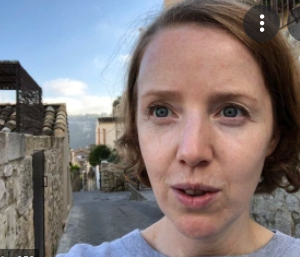Abstract
This presentation will describe how urban Mongolians navigate the capital city Ulaanbaatar’s chronic air pollution in relation to breath, clarity, bodily winds and purification. It will describe how blockages in breath relate to other kinds of obscuration and stagnation in the post-socialist period. In Ulaanbaatar the murky and obscuring nature of air pollution has become an active part of Mongolian religious and ritual life. This talk will illustrate how air pollution and related phenomena exist in dynamic tension with Buddhist purification practices, along with ideas about the renewing energies of breath, wind and movement.
Questions for reflection
How do restrictions in breath relate to other kinds of obscuration and stagnation in the postsocialist period in Mongolia?
Does the quality of the air that people breathe influence spiritual practices and/or perceptions of the efficacy of spiritual practices?
Is air pollution and other kinds of pollution a spiritual problem?
Further reading
Abrahms-Kavunenko, Saskia. 2019. Enlightenment and the Gasping City: Mongolian Buddhism at a Time of Environmental Disarray. Ithaca: Cornell University Press
Humphrey, Caroline, and Hürelbaatar Ujeed. 2012. “Fortune in the Wind: An Impersonal Subjectivity.” Social Analysis 56 (2): 152–167.
Jackson, Sarah. 2015. “Dusty Roads and Disconnections: Perceptions of Dust from Un-paved Mining Roads in Mongolia’s South Gobi Province.” Geoform 66: 94–105.
Dr Saskia Abrahms-Kavunenko is an anthropologist and the author of Enlightenment and the Gasping City. She has published on the topics of Buddhism, shamanism, postsocialism, economic anthropology, global warming and pollution, and materiality in Mongolia and India. Dr Abrahms-Kavunenko is dedicated to the role of anthropologist as co-communicator and collaborative agent. Her work is situated at intersections between environmental changes and cultural praxis, in multi-scalar and trans-species contexts, and intends to render itself at the service of life. She has held research positions at the Max Planck Institute for Anthropology, New York University Shanghai, the Max Weber Center for Advanced Cultural and Social Studies at the University of Erfurt and the Institute for Advanced Studies at the University of Edinburgh. She is currently a Marie Skłodowska-Curie Fellow within the Center for Contemporary Buddhist Studies at the Department of Cross-Cultural and Regional Studies at the University of Copenhagen and is the co-founder of Cenote a travelling multi-disciplinary residency program committed to bridging the communicative gap that yawns ever wider between human cultures and the living systems and intelligences which support and co-constitute our existence.

